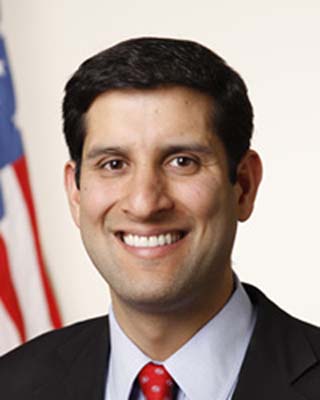
Vivek Wadhwa on Vivek Kundra
Vivek Kundra, the first Chief Information Officer of the US Federal Government has resigned. He is taking up a joint fellowship at the Kennedy School and the Berkman Center for Internet and Society at Harvard University.
What Jack Lew, the Director of the Office of Management and Budget (OMB), had to say on the department’s blog: Today, Vivek Kundra, our nation’s first federal Chief Information Officer (CIO) announced that later this summer he will be leaving the post for a fellowship at Harvard University.

When President Obama appointed Vivek Kundra as the first U.S. CIO, he said, “Vivek Kundra will bring a depth of experience in the technology arena and a commitment to lowering the cost of government operations to this position. As Chief Information Officer, he will play a key role in making sure our government is running in the most secure, open, and efficient way possible.”
When he began at the White House, he brought with him the promise of good ideas and a hard-charging style focused on getting things done, necessary qualities to tackle the difficult issues facing Federal IT – an aging infrastructure with rising operating costs, too many major projects failing to deliver, and increasing vulnerability to outside threats. Two and a half years after joining the Administration, Vivek has delivered on that promise. He has cracked down on wasteful IT spending, saved $3 billion in taxpayer dollars; moved the government to the cloud; strengthened the cybersecurity posture of the nation while making it more open, transparent, and participatory. His work has been replicated across the world from 16 countries that have deployed the data.gov model to tap into the ingenuity of their people to multiple countries that have deployed the IT dashboard to save money.
I want to congratulate him on his move to Harvard in mid-August to serve as a joint fellow at the Kennedy School and the Berkman Center for Internet and Society. We are planning for a smooth transition, continuing these remarkable gains in changing the way the Federal government manages IT and Vivek’s impact on cutting waste and making government work better for the American people will continue to be felt well beyond his departure from Federal service.
Here’s Washington Post columnist Vivek Wadhwa’s take on it:
When Obama became President, there was a lot of excitement about Government. Respected academics, like my former Dean at Duke, Kristina Johnson, left their jobs to help change the world. Nearly all of these people became disenchanted. Government jobs are considered drab and bureaucratic again—like they used to be.
My new piece in The Washington Post discusses the departure of one of the most promising of Obama’s recruits—Vivek Kundra, and the damage this will do to a very important movement that he and U.S. CTO Aneesh Chopra launched.
Vivek Kundra’s resignation last week from his post as the nation’s Chief Information Officer is an ominous event.
Kundra’s goal was to set government data free via an expansive Internet effort called Data.gov, and encourage innovation with government-collected data through the Open Government Initiative. He had hoped to slash tens of billions of dollars from the government information technology (I.T.) budget by democratizing who and which types of companies can deliver I.T. solutions to the government. The most radical part of his program was to make public data available to entrepreneurs, allowing them to build new applications that solved problems for the government and their communities.
The program was off to a great start, with hundreds of thousands of data sets becoming available, and entrepreneurs building thousands of innovative applications. Then the ill-considered race to slash the Federal deficit started. The Obama Administration agreed to cut e-government initiative funding from $35 million to $8 million. Never mind that Kundra’s programs had already saved taxpayers $3 billion over the past two years.
Not surprisingly, Kundra resigned. Why preside over a portfolio of shuttered initiatives? In a phone interview, Kundra acknowledged that he is worried about the program’s funding, but told me that he believes that the open data initiative has so much momentum that it is unstoppable, echoing the sentiment issued in his formal statement that he is “confident progress will continue.”
But, with Kundra gone, I am not optimistic about the program. Whenever a program loses its key evangelist, it normally dies. The Open Government Initiative is likely to suffer a slow, inevitable death.
We may live in the richest nation on Earth, but most government agencies and large corporations still process their mission-critical transactions on ’60s-era legacy systems that were designed for machines with less processing power than an iPhone. And they’re more expensive. The I.T. systems for these mainframes typically took years to build and cost millions of dollars — and that doesn’t include the hundreds of millions more we spend to maintain them.

Vivek Wadhwa is a Visiting Scholar at UC-Berkeley, Senior Research Associate at Harvard Law School and Director of Research at the Center for Entrepreneurship and Research Commercialization at Duke University. You can follow him on Twitter at @vwadhwa and find his research at www.wadhwa.com
